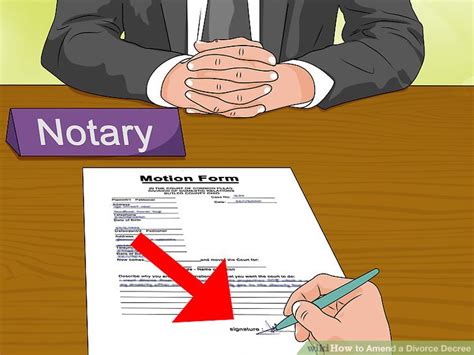How to Effectively Amend Your Divorce Decree
Divorce decrees, while legally binding, aren't always set in stone. Life throws curveballs, and sometimes circumstances necessitate amending your divorce decree to reflect changes in your life or new agreements with your ex-spouse. This process, while potentially complex, can be navigated effectively with careful planning and legal expertise. This guide will walk you through the process, addressing common questions and concerns.
What are Common Reasons for Amending a Divorce Decree?
Several reasons might prompt you to seek an amendment to your divorce decree. These often involve significant life changes affecting child custody, child support, spousal support (alimony), or property division.
- Changes in Income: A substantial increase or decrease in income can impact child support or spousal support obligations.
- Relocation: Moving to a different state or even a significant distance within the same state can require modifications to custody arrangements and visitation schedules.
- Change in Child's Needs: As children grow older, their needs evolve. This might require adjustments to child support or healthcare provisions.
- Unforeseen Circumstances: Unexpected events, such as illness or job loss, can create a need for modification.
- Mutual Agreement: Sometimes, both ex-spouses agree on changes that benefit the family, requiring a formal amendment to the decree.
How Can I Amend My Divorce Decree?
The process of amending a divorce decree typically involves several steps:
-
Consult with an Attorney: This is crucial. Family law is complex, and an attorney can advise you on the best course of action based on your specific situation. They can ensure your rights are protected and the amendment is legally sound.
-
File a Motion to Modify: This formal request to the court outlines the changes you seek and provides justification for the amendment. The motion should be clearly written and include supporting documentation.
-
Serve the Other Party: Your ex-spouse must be officially notified of the motion and given the opportunity to respond. Your attorney will handle the proper legal service.
-
Negotiation and Mediation: Ideally, you and your ex-spouse can reach a mutually agreeable solution. Mediation can be a helpful tool to facilitate communication and compromise.
-
Court Hearing: If you and your ex-spouse can't agree, the court will hold a hearing to consider the motion. You and your ex-spouse will present your cases, and the judge will make a decision based on the law and the best interests of any involved children.
-
Amended Decree: Once the court approves the changes, an amended divorce decree will be issued, legally reflecting the modifications.
What Happens if My Ex-Spouse Doesn't Agree to the Changes?
If your ex-spouse opposes the amendment, the process becomes more challenging. You'll need to present compelling evidence to the court demonstrating the need for changes. This might involve financial documentation, witness testimonies, or expert opinions. The judge will assess the situation and decide whether the modification is warranted.
What Documentation Will I Need?
The necessary documentation will vary depending on the specific circumstances of your case. However, you should generally anticipate needing:
- Original Divorce Decree: This serves as the foundation for the amendment.
- Financial Records: Bank statements, pay stubs, tax returns, and other financial documents to support claims about income changes.
- Medical Records: If the amendment relates to a child's health or the health of a spouse, relevant medical documentation might be necessary.
- Proof of Service: This demonstrates that your ex-spouse was properly notified of the motion.
Can I Amend My Divorce Decree Myself Without a Lawyer?
While it's theoretically possible to amend your divorce decree without a lawyer, it is strongly discouraged. Family law is intricate, and making mistakes can have significant legal and financial ramifications. An attorney can guide you through the process, protect your rights, and increase the likelihood of a favorable outcome.
How Long Does the Process Take?
The timeline for amending a divorce decree varies considerably, depending on the complexity of the case, the level of agreement between the parties, and the court's caseload. It could take anywhere from a few months to over a year.
Conclusion
Amending a divorce decree is a legal process requiring careful consideration and often professional legal assistance. Understanding the reasons for amendment, the necessary steps, and potential challenges will help you navigate this process effectively. Remember, seeking legal counsel early is highly recommended to protect your rights and ensure a positive outcome.

